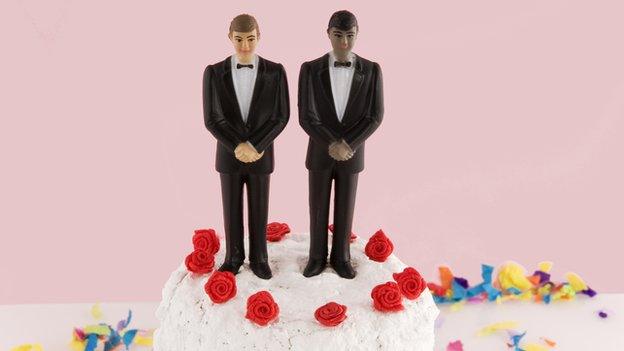'Gay cake row': Catholic Church supports DUP conscience clause
- Published
Bishop of Down and Connor Noel Treanor met DUP MLA Paul Givan at Stormont to discuss plans for a conscience clause in Northern Ireland's equality legislation
The Catholic Church has said it supports the general objective of a DUP Private Member's Bill seeking to build a conscience clause into equality law.
The bill was drawn up by DUP MLA Paul Givan, after a Christian-run bakery faced legal action for refusing to bake a cake with a pro-gay marriage slogan.
The clause would allow businesses to refuse to provide some services if they clash with their religious convictions.
A delegation led by the Bishop of Down and Connor met the DUP for talks.
'Real problem'
After meeting Mr Givan and the DUP leader Peter Robinson at Stormont, the Catholic delegation said that any change to the law would have to be carefully defined, to prevent it from leading to spurious claims of religious conscience.

The Catholic delegation included Fr Tim Bartlett from the Catholic Council on Social Affairs (left)
However, Bishop of Down and Connor Noel Treanor said politicians must accept there was a real problem that needs to be addressed.
He said it would be wrong to swap one form of discrimination for another.
The Catholic Church has concerns about the impact of anti-discrimination law on its adoption agency and, potentially, its marriage guidance service.
The row over the pro-gay marriage cake began last year, when Northern Ireland's Equality Commission said it would take legal action against Ashers bakery for refusing to accept a customer's order.
The family-run firm said fulfilling the order would have contravened the owners' strongly held Christian beliefs that marriage should be between a man and a woman.
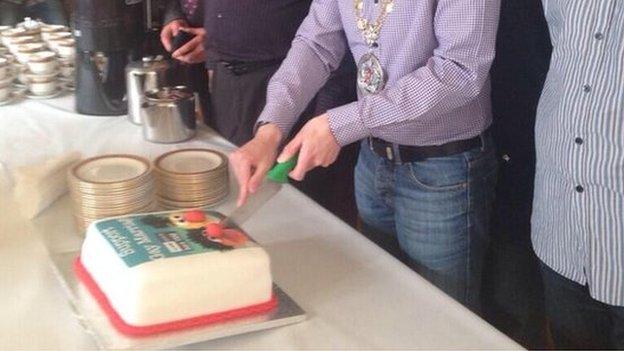
The cake was ordered for an International Day Against Homophobia and Transphobia event last May, and another bakery accepted the order after Ashers declined
Mr Givan is currently carrying out a consultation into a Private Member's Bill, but opponents have pledged to block the conscience clause bill if it ever gets to the Stormont chamber.
Sinn Féin said it had gathered enough support for a petition of concern, which means that the bill would need cross-community support and, therefore, would not pass into law.
Sinn Féin's 28 MLAs have pledged to sign the petition, as have the Green MLA Steven Agnew and NI21 MLA Basil McCrea.
This brought the potential petition to 30 signatures, which is the number needed to make it valid.
SDLP MLA Alex Attwood said that if the bill was ever tabled in the assembly, his party would also take part in a petition of concern.
An Alliance Party spokesperson said: "When the bill is tabled, Alliance MLAs will vote against the so-called 'conscience clause', due to the flawed nature of the proposal and we believe there is a very good chance it could be defeated on a straight vote, without any special measures such as a petition of concern."
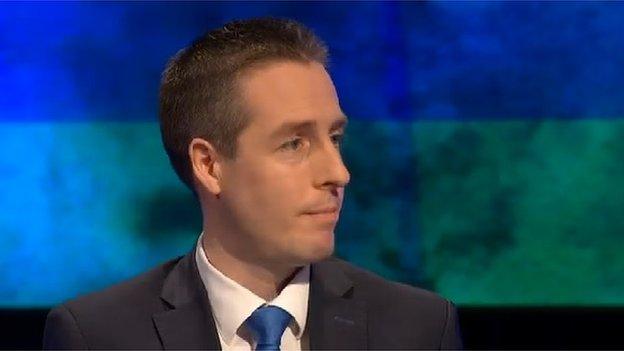
Paul Givan said some Christians felt their religious beliefs were being ignored
'Tolerant'
Mr Givan said that "Christians do not feel there is space being made for their religious beliefs".
"The issue at stake is when you're asked to produce a particular service," he said.
"It's about the message you're being asked to endorse, not the messenger who's asking for it. Say someone comes in and asks for a cake saying 'I support gay marriage' - that's a direct form of communication you're asking this Christian-owned company to produce and they don't want to be forced to do that.
"I don't think that's unreasonable, I think that's tolerant and if we live in a pluralist, liberal society we need to make space for difference."
Mr Givan's bill aims to create a legal exemption on grounds of strongly held religious beliefs.
Last month, more than 1,000 people gathered at Belfast's City Hall to protest against the bill.
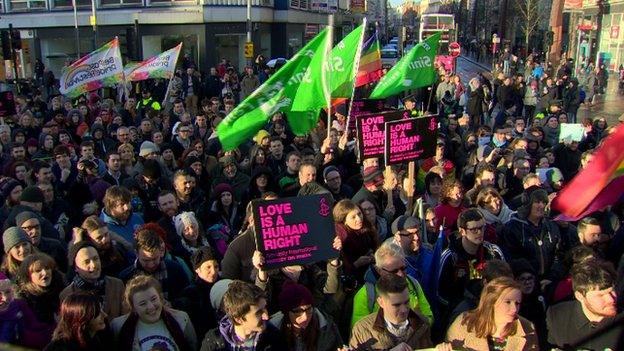
Thousands attended a rally in Belfast in January to protest against the clause
A public consultation, external on the bill closes on 27 February.
- Published19 February 2015
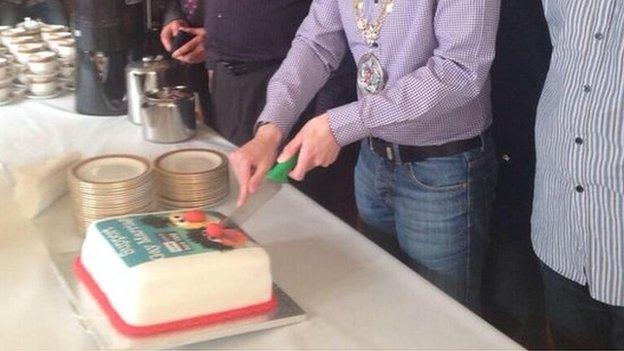
- Published31 January 2015

- Published8 December 2014

- Published23 November 2014

- Published22 November 2014
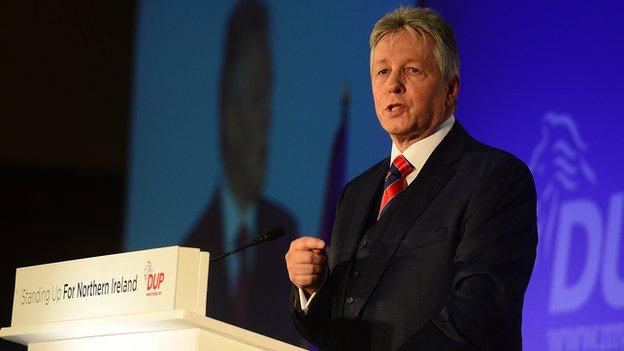
- Published19 November 2014

- Published6 November 2014

- Published8 July 2014
